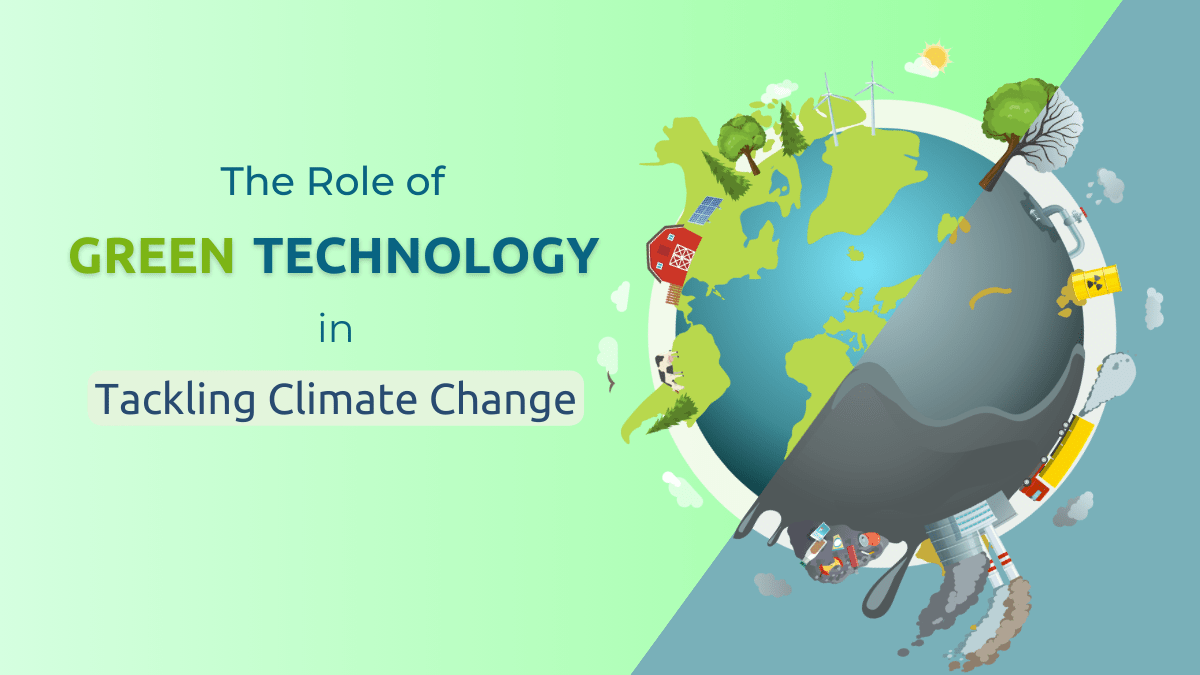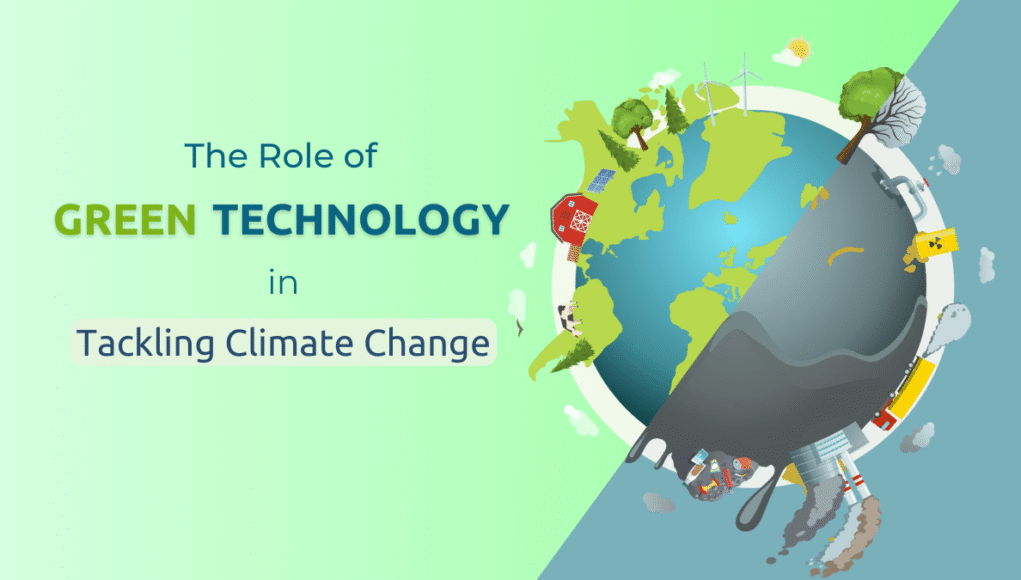How Green Energy Devices Help Combat Climate Change, highlighting the innovative solutions that are paving the way for a more sustainable future. With the increasing urgency to address climate issues, green energy devices offer practical and effective means to reduce carbon emissions and promote environmental health. From solar panels to wind turbines, these technologies not only harness renewable energy but also empower communities to take action against climate change.
As we navigate the complexities of global warming, understanding the role of green energy devices becomes essential. They not only reduce reliance on fossil fuels but also provide cleaner, more sustainable alternatives that can be adapted to various environments. This shift towards green technology is not just a trend; it is a necessary evolution that can lead to significant improvements in air quality, energy efficiency, and overall ecological balance.
In the fast-paced world of technology and communication, understanding the significance of effective communication has never been more vital. As we navigate through the digital age, the modes and methods of connecting with one another have evolved rapidly, shaping our interactions both personally and professionally. This article explores the essence of effective communication, its importance in various contexts, and practical tips to enhance your communication skills.Effective communication is often defined as the exchange of information in a manner that is clear, concise, and easily understood by the intended audience.
It encompasses not just the words we speak or write, but also the tone, body language, and the medium we use to convey our messages. In an era where information overload is commonplace, the ability to articulate thoughts clearly and engage meaningfully is a prized skill. The Importance of Effective Communication
1. Building Relationships
At the core of effective communication is the ability to foster and maintain relationships. Whether in a personal setting or a professional environment, clear communication helps to establish trust and understanding. In workplaces, for instance, when team members communicate effectively, it enhances collaboration and boosts morale. In personal relationships, open dialogue helps resolve conflicts and deepens connections.
2. Enhancing Understanding
Misunderstandings can lead to confusion, frustration, and conflict. Effective communication minimizes these instances by ensuring that messages are conveyed in a straightforward and comprehensible manner. By articulating thoughts clearly, individuals can prevent misinterpretations that could derail conversations and cause unnecessary issues.
3. Promoting Engagement
Whether in a meeting, a classroom, or a casual conversation, engaging communication captures attention and encourages participation. When speakers are enthusiastic and articulate, they draw in their audience, making it easier for listeners to absorb information and actively contribute to discussions.
4. Facilitating Decision-Making
In business environments, effective communication is crucial for decision-making processes. When information is conveyed clearly, it allows team members and stakeholders to make informed choices. This is particularly important in leadership roles, where the ability to present ideas persuasively can influence the direction of a project or the organization as a whole.
5. Boosting Productivity
Clear communication has a direct impact on productivity levels. When team members understand their roles and responsibilities, along with the expectations set for them, they can work more efficiently. In contrast, a lack of clear communication can lead to repeated mistakes, delays, and a decrease in overall productivity. Barriers to Effective CommunicationDespite its importance, several barriers can impede effective communication. These barriers can stem from various sources, including:
Language Differences
In diverse environments, language barriers may pose significant challenges. Misinterpretations can arise when individuals are not fluent in the language being used, thereby affecting communication flow.
Cultural Differences
Cultural backgrounds can influence how information is perceived and conveyed. Different cultures have varying norms regarding communication styles, which can lead to misunderstandings if not acknowledged.
Emotional Barriers
Emotions play a significant role in how we communicate. Stress, anger, or anxiety can hinder an individual’s ability to express themselves clearly or interpret messages effectively.
Distractions
In today’s digital age, distractions from technology and multitasking can detract from our ability to communicate effectively. It’s common to find individuals checking their phones or trying to juggle multiple tasks, which can lead to missed information or miscommunication.
Assumptions
Making assumptions about what others know or understand can lead to ineffective communication. It’s essential to provide context and clarify information to ensure clarity. Tips for Enhancing Communication SkillsTo overcome barriers and improve your communication skills, consider the following strategies:
1. Practice Active Listening
Listening is just as important as speaking in effective communication. Active listening involves fully concentrating on the speaker, understanding their message, and responding thoughtfully. This not only demonstrates respect but also ensures clarity in conversations.
2. Be Clear and Concise
Aim to express your thoughts as clearly and succinctly as possible. Avoid jargon and complex language that may confuse your audience. Instead, use simple language that conveys your message effectively.
3. Know Your Audience
Tailoring your communication style to suit your audience is essential. Consider their background, knowledge level, and preferences when delivering your message. This helps ensure that your message resonates and is understood.
4. Use Non-Verbal Communication
Body language, facial expressions, and gestures play a crucial role in communication. Being aware of your non-verbal cues can enhance the message you are trying to convey. Additionally, observing others’ body language can provide valuable insights into their thoughts and feelings.
5. Ask for Feedback
Soliciting feedback from others about your communication style can provide valuable insights. It allows you to identify areas for improvement and adapt your approach accordingly.
6. Stay Open-Minded
Being open to different perspectives enhances communication. A willingness to consider alternative viewpoints fosters an environment of mutual respect and understanding.
7. Practice Empathy
Empathy is the ability to understand and share the feelings of others. Practicing empathy in communication allows you to connect with others on a deeper level, making your interactions more meaningful.
8. Improve Your Writing Skills
Written communication is just as important as verbal communication. Enhancing your writing skills can help you articulate your thoughts more effectively. Focus on grammar, clarity, and structure in your written communications to ensure your message is conveyed accurately.
9. Engage in Public Speaking
Public speaking can be a powerful tool for improving communication skills. Engaging in speaking opportunities, whether in front of small groups or larger audiences, can enhance your confidence and ability to articulate your thoughts clearly.1
0. Stay Informed
Keeping yourself informed about current events, trends, and topics relevant to your field can enhance your communication skills. This knowledge provides you with subjects to discuss and helps you contribute meaningfully to conversations. ConclusionIn conclusion, effective communication is a cornerstone of successful interactions, both in personal and professional realms. Understanding its importance, overcoming barriers, and implementing strategies to enhance communication skills can significantly improve relationships, engagement, and overall productivity.
As we continue to navigate the complexities of modern communication, investing time and effort into developing these skills will undoubtedly pay off, allowing us to connect with others more profoundly and meaningfully. Remember, effective communication is not just about exchanging words; it’s about fostering understanding and building lasting relationships.

FAQ Compilation: How Green Energy Devices Help Combat Climate Change
What types of green energy devices are available?
Common types include solar panels, wind turbines, geothermal systems, and biomass converters.
How do green energy devices reduce carbon emissions?
They replace fossil fuel usage with renewable energy sources, thus lowering greenhouse gas emissions significantly.
Are green energy devices cost-effective?
While initial costs can be high, they often result in long-term savings through reduced energy bills and government incentives.
Can green energy devices work in urban areas?
Yes, many green energy solutions can be effectively implemented in urban settings, such as rooftop solar panels and urban wind turbines.
What is the future of green energy technology?
The future looks promising, with continuous advancements in efficiency and storage technologies, making green energy more accessible and effective.






